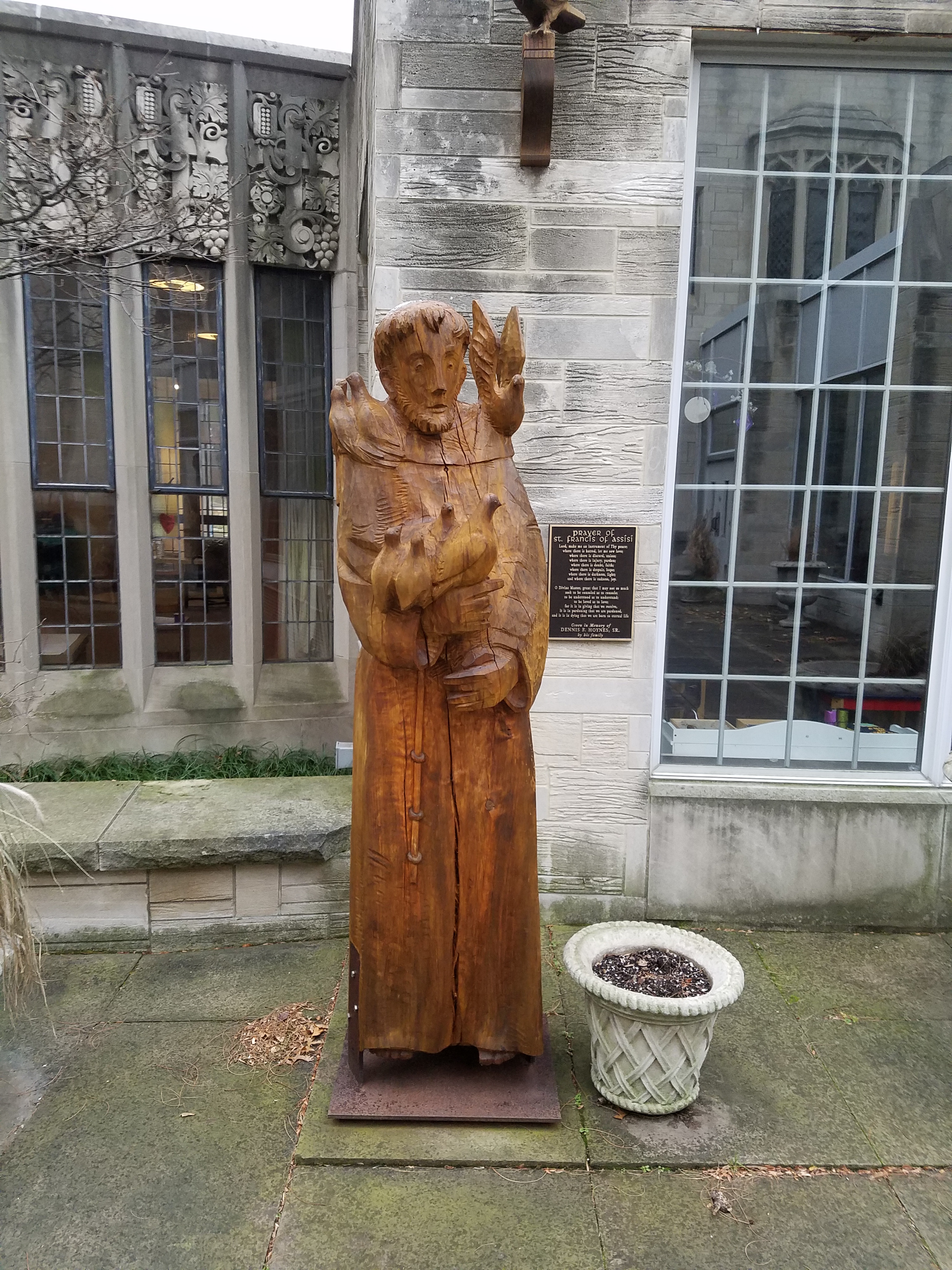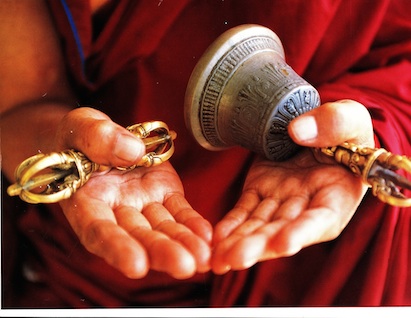Humility (humilis, “from the earth”) is not a lowly regard for self nor is it remotely associated with humiliation or diminished dignity. It is a form of objectivity — objective assessment of the equal worth of the self in relation to others, neither less nor more. The humble person does not look up or look down. The humble do not indulge in self-deprecation or in the deprecation of others, but only build up.
In these times, are we forgetting that humility is necessary to respect the perspectives of others, and to listen attentively to those with whom we disagree? Have we become so arrogantly polarized that we lack the gentle curiosity to even try to better understand others, and to disagree in the civility that affirms our shared humanity? Even when we feel that our views represent deep truth, does this justify our allowing our inner being to descend in a downward negative vortex of bitterness, hostility, hatred, rage and possibly violence?

Let’s contemplate a few quotes on humility that have meant a lot to some of us over the years:
“In humility is the greatest freedom. As long as you have to defend the imaginary self that you think is important, you lose your peace of heart.”
~Thomas Merton
“They weave in an imperfection in every Persian rug because God alone is perfect. How can we not be humble?”
~Anonymous
“Humility is not thinking less of yourself, but thinking of yourself less.”
~ wrongly attributed to C.S. Lewis (but nevertheless a fine quote)
We Americans have long struggled to affirm a color-blind Presence (aka “God”) that cherishes all equally whatever combination of brown, yellow, black, red, or white that colors their skin. As Dr. King wrote, we can only fulfill our common destiny by following the methods of love: “Violence brings only temporary victories; violence, by creating many more social problems than it solves, never brings permanent peace. I am convinced that if we succumb to the temptation to use violence in our struggle for freedom, unborn generations will be the recipients of a long and desolate night of bitterness, and our chief legacy to them will be a never-ending reign of chaos.” (Rev. Martin Luther King, Jr., Strength to Love)
Arrogance is the root cause of the violence in our world. Political factions come to blows, as do religions, nations, races, families and individuals. A hideous form of arrogance is genocide, in which one ethnic or racial group has so much a sense of superiority that they determine to eliminate whole other groups including women and children. These destroyers seek the wrong kind of oneness by eradication. This occurs not just by mass murder, but by mass social injustice that more slowly consigns whole groups to a more subtle form of destruction. Those who stand up against extermination and affirm our shared humanity, such as Lincoln, Gandhi, Dr. King, and Mrs. Benazir Bhutto, are so threatening to the arrogant “superiors” that they fall victim to the assassin’s bullets.
This inflated self is not the true self, any more than it is true that the earth rather than the sun is the center of the universe around which all else orbits. The same can be said of in- groups of all kinds that tend to think they are absolutely right and perfect, when in fact some things that they believe as Ultimate Truth do not hold against logical criticism or known knowledge. It usually turns out that the people in that “othered” group are also creative, intelligent, motivated, and gifted. This is the logic of equality.
Arrogance destroys truth by making lying a mark of boldness. It has been said by tyrants that if you tell a big enough lie and tell it frequently enough, it will be believed. We hear partisans who daily have no second thoughts about the distortion of truth. Pontus Pilate found Jesus guilty of no crime, but nevertheless asserted “Quid est veritas?” or “What is truth?” The sincere commitment to honesty begins with the humble individual who knows that they are not more important than truth.
Humility is the mother of all virtues, for without it we leave no space in the room of our lives for others, and then we can be neither kind nor respectful. How tragic are the hateful and violent deeds done in the name of our inevitably small ideas of the Ultimate. We know so little about this mysterious creative energy other than that it is an energy of healing unconditional love rather than hate. Humanity must make progress in humility to avoid conflicts and learn more about how little we know. Only with humility can we all be stable points of light in these chaotic and violent times. Race supremacy of any kind leads to immense evil. The same can be said of ethnic, cultural, class, and familial supremacy. It takes humility to acknowledge the imperfection within ourselves, to become more accepting of all others, even when we differ in opinion. At a certain point, we need to release others from our hatred for many reasons, including our own health and happiness, which will eventually be destroyed by hostilities. Humility allows us to tolerate differences with patience and forbearance. It allows forgiveness, and without forgiveness nations perish.

Meditation and Prayer — Listening and Speaking
Depending on cultural traditions, many people meditate or pray. Together these two are synergistic. Meditation is an initial stilling of the “monkey-chatter” in our minds (as the Buddhists say), letting all thoughts drift away like clouds in the sky; it is a quiet attentive listening to the Presence within us. Meditation strives to supplant thought in favor of silence and stillness. Prayer is a speaking to the Presence, involving thoughts and their expressions. To communicate well it is very often better to listen carefully than to speak much, and to hear that Presence in the silence or in the beautiful spring breeze or ocean waves. In this attentive flow the line between meditation and prayer blurs.
The Giver’s Glow Meditation & Prayer
Relax after focusing on your breathing, and allow your thoughts to drift away so your mind becomes empty. Then envision images of your nearest and dearest standing before you, observe them in detail, and focus healing love upon each in turn. Then expand this to the neediest people you know, the ones who are suffering, and then to all humankind concentrically from wherever you might be. Whisper these words audibly and with love before each of these images:
May you give and glow
May you heal with kindness
May you raise kind children
May you follow your creative calling
May you feel the Presence within
May you feel the Presence without
May you have the humility necessary to love

Humanity must make progress in humility to avoid conflicts—only then will we all be stable points of light in these chaotic and violent times. It takes humility to acknowledge the imperfection within ourselves and to become more accepting of others—and being humble opens us to kindness and deeper connection with others.
On Sunday, October 25th from 1-3pm PT/4-6pm ET, Dr. Post is presenting a virtual workshop. A Time for Humility, presented by East West Books in Silicon Valley, CA. Following his presentation, he will lead a guided meditation, The Giver’s Glow, and then open for Q&A about how to access and share our greatest qualities in our lives. To register for this event, click here: https://www.eastwestbooks.org/events/humility-25oct20.
For more about Stephen G. Post and his work, visit The Institute for Research on Unlimited Love or StephenGPost.com


